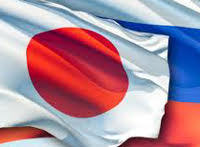Earthquake to change relations between Tokyo and Moscow for good
 Officials from the Russian Ministry for Foreign Affairs believe that the natural disaster in Japan will give the two countries an opportunity to either solve or soothe the territorial dispute between Moscow and Tokyo regarding the issue of Kurile Islands.
Officials from the Russian Ministry for Foreign Affairs believe that the natural disaster in Japan will give the two countries an opportunity to either solve or soothe the territorial dispute between Moscow and Tokyo regarding the issue of Kurile Islands.

Such a turn of events has already taken place in international practice before. The US-Russian ties, for instance, improved after the 9/11 attacks in 2001. In addition, Russia and Poland improved their ties after April 10, 2010, when Polish President Lech Kaczynski and the entire political establishment of Poland died in an air crash near Smolensk.
Russia became one of the first countries to have offered its assistance to Japan in connection with the natural disaster. President Dmitry Medvedev left many of his counterparts behind in expressing condolences to the people of Japan. Moscow was anxiously waiting for Japan's response to the proposed help because the relations between the two countries have been quite tense recently. As many as 69 other states sent their rescuers to Japan, many of them arrived in the country on Saturday.
It became known on March 12th that Tokyo decided to accept Russia's help. Russia sent two brigades of rescuers to Japan immediately after that. At first it was decided to send an Il-76 of Russia's EMERCOM with 50 specialists on board, as well as three rescue vehicles and equipment. The plane landed in Tokyo on Monday morning, Interfax reports.
A Mi-26 helicopter carrying 25 rescuers on board left for Japan from Russia's Sakhalin island as well. Moscow is about to send humanitarian help to Japan too.
Russia is also sending tankers with liquified natural gas and vessels with coal to Japan. The country will also need additional energy resources since nuclear power plants have been shut down. Russian Vice Prime Minister Igor Sechin said that nuclear power plants make up to 30 percent in the energy balance of Japan. Russia is ready to supply up to 500,000 tons of liquified natural gas from Sakhalin-2 project for 12 months. Moscow will also be able to increase coal shipments to Japan by 3-4 million tons within a short period of time.
Japan's Foreign Minister Takeaki Matsumoto is planning to conduct a meeting with Russian Foreign Minister Sergei Lavrov in Paris. Mr. Matsumoto is expected to express his words of gratitude to Russia for solidarity and assistance in overcoming the consequences of the monstrous natural disaster. The Japanese minister also intends to unveil more details about the current state of affairs in the country, particularly about the situation at Fukushima-1 nuclear power plant.
The meeting between Russia's Lavrov and Japan's Matsumoto is to be held in Paris within the scope of the meeting between foreign ministers of G8 countries.
The tragedy in Japan triggered a wave of sympathy among Russians. Russia's largest state-run bank, Sberbank, opened special accounts on Friday to collect donations for Sozidaniye charity fund.
Many Muscovites came to the building of the Japanese Embassy in Moscow to lay flowers and light candles in memory of the victims of the destructive earthquake and tsunami. The last time, when Russians reacted so to a major tragedy in a foreign state, was after last year's air crash near Smolensk, in which the Polish administration, including President Lech Kaczynski, died.
Officials from the Foreign Affairs Ministry of Russia stated that the country's prime goal now is "to help the Japanese cope with this nightmare, rather than think of some pragmatic things."
Many Russians living in the Fast East also bring flowers to the building of Japan's Consulate General Office in Vladivostok.
Subscribe to Pravda.Ru Telegram channel, Facebook, RSS!




